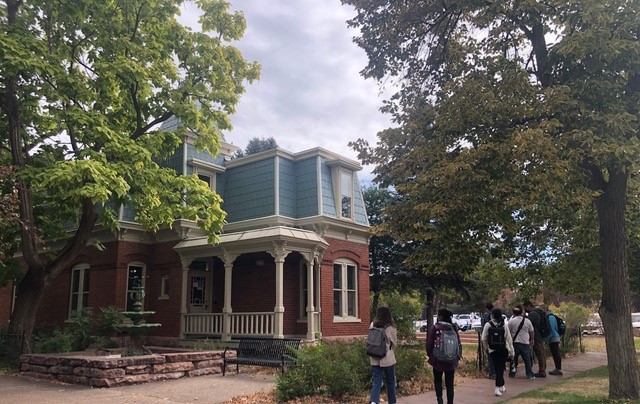Dr Rachel S. Gross shares her experience of community-based history projects and leads a workshop on connecting academic and community aims.

In the 1970s, more than 300 families were removed from their homes in Denver, Colorado when the Denver Urban Renewal Authority seized the area to build a higher education campus. These were the city’s longtime Westside residents, part of a thriving mostly Chicano community, who had weathered flooding, environmental challenges due to their proximity to industry, and persistent neglect from city officials. The neighborhood became the Auraria campus, now a facility that houses three colleges and universities and sees more than 40,000 students and staff pass through on a daily basis. The former residents relocated to Denver’s Northside and beyond, but never forgot their community ties nor the promises for educational access officials made during the relocation process.
For five years, environmental and public historian Rachel S. Gross has worked with the community of Displaced Aurarians to research their history, tell their story, and advocate for their continued presence on the campus. Community-led history projects have included class visits, a curriculum website, a walking tour, a digital walking tour, a campus-wide symposium, and museum exhibits. These projects demonstrate the benefits of doing history in support of community goals such as rich oral histories and other storytelling, immediate relevance for historical research, and even policy payoffs. The projects point to some challenges of working closely with community, namely the risk of relying on a few representatives of a large group, the tendency toward nostalgia when it comes to historical recollection, and the tricky balance between academic work cycles and community goals.
Dr. Gross will share her experiences with community-based history projects and lead a brainstorming activity for other academics interested in connecting their research interests and skills to community aims.
Rachel S. Gross is a historian of the outdoor industry and author of Shopping All the Way to the Woods: How the Outdoor Industry Sold Nature to America (Yale University Press, 2024). She is an Assistant Professor of History at the University of Colorado Denver where she teaches U.S. environmental, business, and public history. She collaborates with students, faculty, and community groups on public projects on the history of displacement and community resistance on the Auraria campus in Denver.
NB! For this event, registration is required.
Register here by Tuesday, 20 May https://nettskjema.no/a/520775